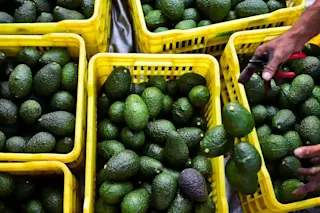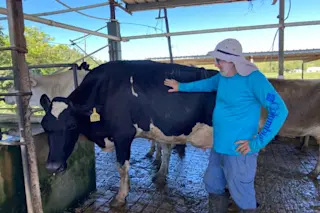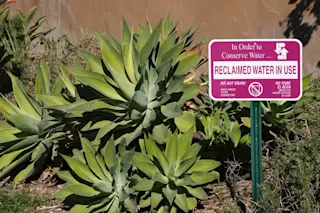The politicized and polarized nature of the climate debate is well established. Those who track the testy, emotionally-charged conversation on agricultural biotechnology wonder if the GMO discourse is heading down that road. I've argued that the rhetorical tactics of GMO skeptics and climate skeptics are similar. Others have also come to see these commonalities (cherry-picking studies, trafficking in pseudoscience, etc). Additionally, it is unfortunate that numerous greens and progressives have allowed ideology to trump science when it comes to GMOs. One might conclude that a public dialogue shaped by interest group politics and scientific distortions is a recipe for polarization. But that would be a wrong assumption. As Yale's Dan Kahan recently said:
I've reported data multiple times showing that GM foods do not meaningfully divide ordinary members of the public along partisan or cultural lines.
This suggests to me that there is still time (at least in the United States) for a level-headed, GMO conversation to prevail. But I think the window is closing rapidly. A social movement revolving around food and health concerns has made GMO labeling a galvanizing issue. The grassroots campaign to label foods that contain genetically modified ingredients is a stalking horse for a larger, hydra-headed campaign against an industrialized food system and the technology (biotech) that has come to be associated with that mode of food production. The politics of this campaign, which is gaining momentum--and industry efforts to counter it-- seems bound to inflame the public GMO debate in ways that turn it into a partisan issue. (These are the kinds of dynamics that politicized climate change.) Is there a way to head off this war before it becomes loaded with cultural meaning and poisons the debate? Alas, I think we're already past that point. I say this because much of mainstream media is taking its cue from the GMO labeling campaign. This biased CNN segment from last year (which I criticized here) is a good example. So is the reporting from a Reuters journalist who has played up pseudoscientific studies suggesting that numerous medical problems can be linked to GMOs. This reporter consistently ignores the overwhelming scientific evidence and declarative statements from scientific institutions on the safety of GMOs. Instead, the reporter turns to anti-GMO activists to comment on science and safety-related questions. Even more astounding, this reporter inserts false balance into her GMO stories. From a recent article:
But some scientific studies have cast doubt on the safety of these biotech crops.
By such logic, I would expect this sentence on a story about vaccines: "But some studies cast doubt on the safety of childhood vaccines." And I would expect this sentence on a story about climate change: "But some studies cast doubt on the theory of global warming." It's true, right? We can find such studies, even though we know they are bogus outliers. Would that sentence be acceptable in stories on climate change or the safety of vaccines? No. People would cry false balance. Now let's go to Dr. Oz, the broadcast TV star with the immensely popular daytime talk show who has been taken to task for promoting all manner of quackery. In recent years he has irresponsibly given cranks a huge forum to peddle unsubstantiated fears about GMO foods. And yesterday, like the Reuters reporter, Oz used an activist from a environmental group with a demonstrable anti-GMO bias as an expert on the safety of agricultural biotechnology. The fear-mongering slant of the segment was painfully obvious. Let's move into the realm of pop culture. Here's Bill Maher's 2012 rant against Monsanto and "frankenfoods" on his HBO show. "Shut up and eat your f**ckin mutant chile!" he shouted at one point. Fortunately, not everyone in media is unhinged on GMOs. In 2013, Nature put together a balanced, informative package of stories and more recently, Cosmos, an Australian magazine did the same. (Disclosure: I work as a senior editor for Cosmos.) Additionally, Amy Harmon's outstanding feature stories in the past year have opened an important, multi-dimensional window into the promising science of crop biotechnology and the socio-political challenges to it. Has this recent wave of cleared-eyed reporting on GMOs shifted the media landscape from knee-jerk hostility to more contextualized coverage? Some commentators think so. For me, the true test comes when popular anti-GMO activists are treated more critically in the media and even challenged to defend their most outrageous claims in interviews. Bill Moyers failed this test with Vandana Shiva several years ago, but one of his colleagues at BBC did not. Speaking of Shiva, here she is recently, diving into a typical rabbit hole of fantasia, likening agricultural biotechnology to dictatorship and terrorism. According to her:
The real science is telling us we need to work on biosafety, we to need to insure there is a right to know, we cannot rush ahead with imposing hazards on the world. Lies will not last. Truth always wins.
Let's hope she is right on that last point about truth.













